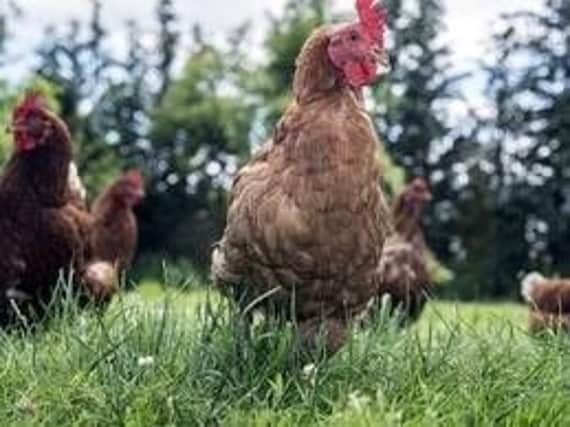New bird flu cases lead to tighter controls


It follows two recent outbreaks of the bird flu strain H5N6 in Dorset and Warwickshire and although the two confirmed cases have been in wild birds, the zone has been implemented to help prevent the virus spreading to poultry and other domestic birds.
This means it is a legal requirement for all bird keepers to follow strict biosecurity measures. Whether a person keeps just a few birds or thousands, they are now legally required to meet enhanced biosecurity requirements. It is in their interests to protect their birds from this highly infectious virus.
Advertisement
Hide AdAdvertisement
Hide AdPublic Health England has advised that the risk to public health remains very low and the Food Standards Agency have said that bird flu does not pose a food-safety risk for UK consumers.
The prevention zone means bird keepers across the country must:
Ensure the areas where birds are kept are unattractive to wild birds, for example by netting ponds, and by removing wild bird food sources;
Feed and water your birds in enclosed areas to discourage wild birds;
Minimise movement in and out of bird enclosures;
Advertisement
Hide AdAdvertisement
Hide AdClean and disinfect footwear, and keep areas where birds live clean and tidy;
Reduce any existing contamination by cleansing and disinfecting concrete areas, and fencing off wet or boggy areas.
Keepers with more than 500 birds will also be required to take some extra biosecurity measures including restricting access to non-essential people, changing clothing and footwear before entering bird enclosures, and cleaning and disinfecting vehicles.
The prevention zone will be in place until further notice and will be kept under regular review as part of the work to monitor the threat of bird flu.
Advertisement
Hide AdAdvertisement
Hide AdCoun John Riddle, Northumberland County Council's cabinet member for planning, housing and resilience, said: “People who keep poultry, whether as pets or as commercial stock must follow these new rules.
“The cases we know of seem a long way away, but wild bird migration can quickly lead to cases across the country. People should call our animal health team if they need any advice on what they need to do.”
Poultry keepers and members of the public should report dead wild birds to the Defra helpline on 03459 33 55 77 and keepers should report suspicion of disease to APHA on 03000 200 301.
Keepers should familiarise themselves with current guidelines. This information can be found at https://www.gov.uk/guidance/avian-influenza-bird-flu
Anyone requiring any further advice can contact Public Protection on 01670 623870 or [email protected]